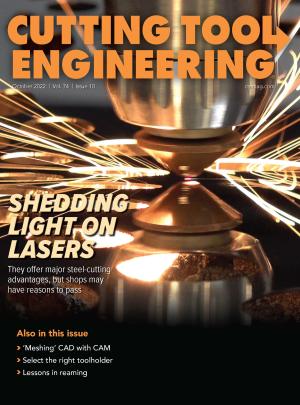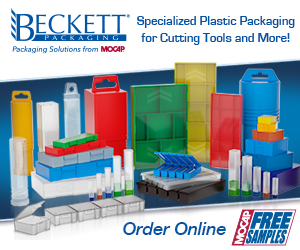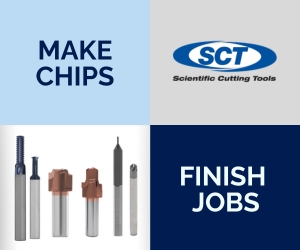Most manufacturers, particularly machine shops, have been familiar with automation for many years. The more that it has advanced in recent times, however, the more options that have come onto the market, making evaluating what is right for a specific business more challenging as there is much more to consider. Assuming that a company already has been taking advantage of some type of automation or has made a business case that justifies moving into an initial automation project, then the next step is determining the correct selection for the firm. Here are three key considerations.
Equipment model: Mill-Assist Essential
CNC machine make: Haas Automation Inc.
CNC machine model: VF-4SS
CNC machine model year: 2021
1. How purpose-built is the automation solution for my application? As technology has advanced, automation solutions have multiplied. Many come in the form of more generic hardware that then is customized to fit one of a wide range of applications. This customization often presents as a significant amount of software programming or bespoke accessories or support. While using one of these more generalized do-it-yourself products may appear to have lower costs upfront, experience has shown that identifying an alternative specifically designed and built to an application can save substantial time and effort on implementation and provide long-term reliability. Although they might come with a somewhat higher initial price tag, these solutions leverage the expertise of application engineers who really understand the distinct needs and demands of a field and build products to suit it — not a broader market. The result is better reliability, greater ease of use, lower overall costs and longer-term satisfaction than a DIY.
2. What is the technical support? Whenever something is implemented on a production floor, there will be hiccups. Over time, the demands of any manufacturing operation will create challenges and wear and tear on equipment. Having an experienced technical support team available is critical. Knowing that an initial phone call will be answered by someone with intimate technical knowledge of the automation is invaluable. This should be a major consideration for any business evaluating important production equipment of any type, but for automation equipment this often means the difference in meeting production demand or not.
3. What is the record of reliability? While the availability of technical support is critical, the expectation is that it won’t be needed very often. That’s why it’s key to understand and validate the record of reliability of any automation solution. This also ties in to having a standardized, purpose-built design because then it’s not an on/off engineered system and it will have a record of field performance based on hundreds of installations. Further, purpose-built systems typically are designed to handle much beyond the standard workloads of the application in terms of run times, stresses like weight and speed, and environmental conditions. These are important to ask about when determining the true total cost of ownership of an automation system.
Automation is a significant investment in nearly any form or application. Choosing wisely means much more than understanding the upfront price or the glossy features and benefits presented on paper. Taking time to uncover the answers to the three elements discussed here will help ensure a good choice and the least cost of ownership.
To view a video of this robotic automation at www.ctemag.com, visit qr.ctemag.com/1boph










